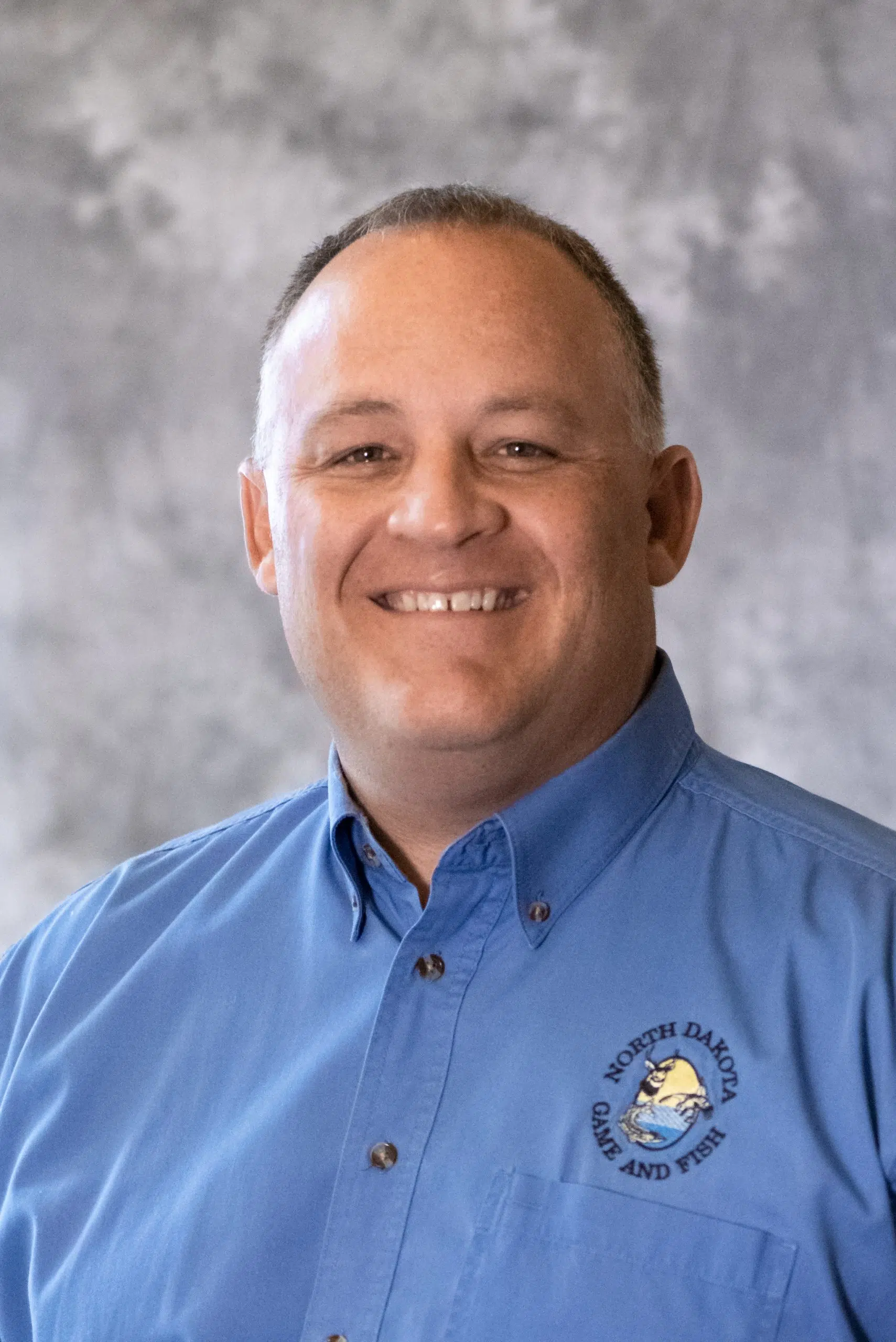
By Doug Leier
Jeb Williams began as the director of North Dakota Game and Fish late summer and it’s been a busy start to his tenure. While he’s been a coworker for more than 20 years, here’s a conversation to help us all get to know Jeb a little bit better.
Give us your background
I was born and raised in western North Dakota, Beach specifically. I am a lifelong resident of the state, which is something I’m proud of. I am a Dickinson State graduate and started to pursue a career in fish and wildlife management.
I was really fortunate to land with the North Dakota Game and Fish Department in a seasonal capacity, as well, a temporary position, which then led to a full-time position. I’ve been with the agency in many different capacities, many different roles, from a seasonal employee to a biologist, to a supervisor, to chief of the wildlife division. That’s the last 22 years in a nutshell.
You took over leadership during a major drought. How does that affect our wildlife and our fisheries?
We know in North Dakota that we will have weather swings that can be very challenging for wildlife and wildlife habitat. It’s going to be interesting moving forward to see if the drought of 2021 turns into a long-term situation or if it stays just short-term. That’s going to be the big question moving forward.
What do you see moving forward in this leadership role?
I see a lot of different things across North Dakota, you see a lot of passion. People who choose to make North Dakota home because of our outdoor resources. As biologists, a lot of time we don’t think a lot about the economic impact that has on the state. But it has been something that I’ve taken on a little more of an interest in … a keen interest as far as looking at some of those details in the last number of years and just seeing the impact that the outdoor recreation industry has on small towns, big towns in North Dakota. It’s really significant.
There’s no doubt that outdoor recreation is not the economic engine in North Dakota, but it’s a cylinder in that engine and if that isn’t continued in the relationship that it has been, I think that you start seeing some problems with that engine. I think that we definitely play a role in that. And again, it’s a really powerful thing when you have people making decisions about where they live. We know North Dakotans are hard working. We know they’re well-educated. They can go just about anywhere in the country to make their home and make a living, but it’s a really powerful thing when you have people that make a decision about where they live because of our outdoor opportunities. North Dakota’s diversity plays a role in that, whether it’s fishing, hunting, waterfowl hunting, upland game hunting, big game hunting … you name it, we have it in North Dakota. And so, that’s very attractive to a lot of different people and that’s something that I definitely take very seriously.
What are some of your priorities?
One of the things that’s always been very important to me is that North Dakota is very private land dominated, 93% of the land in North Dakota is dominated by private ownership. As an agency, we need to make sure we have as good a relationship as we possibly can with private landowners, because those hunting and fishing opportunities are a lot of times on the backs of private landowners. It’s something that we need to make sure that we continue to improve those
relationships the best way possible, make sure we look at different programs that are out there available for private landowners to give them additional options for their operation.




Comments